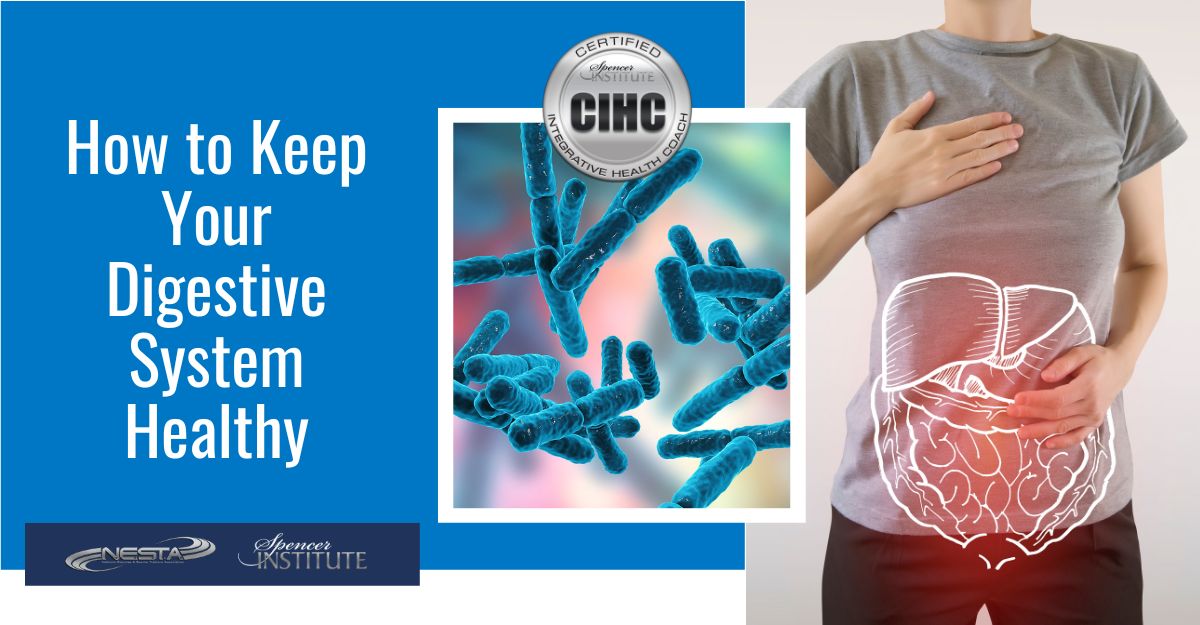
Why Your Digestive System is Important
The process of digestion turns your food into nutrients that are needed to function and survive. Your body uses nutrients for energy, growth, and cell repair. Research has shown that your digestive system can affect mood and overall mental health due to the strong connection between the digestive system and the brain.
Common Signs of Digestive Problems
Experiencing digestive problems can happen to anyone. Common symptoms include cramps, bloating, gas, and diarrhea or constipation. While these are not always a sign of something more serious, certain conditions like Irritable Bowel Syndrome, Diverticulitis, and Crohn’s Disease can put you at a higher risk for these symptoms.
How to Keep Your Digestive System Healthy
Eat Healthy Foods
For your digestive system, this means eating plenty of fruits, vegetables, and both insoluble and soluble fiber. Soluble fiber found in foods like oat bran, barley, nuts, seeds, and beans helps your digestive system absorb water. Insoluble fiber found in foods like wheat bran, vegetables, and whole grains keeps everything moving through your digestive tract.
Stay Hydrated
Drinking plenty of water helps your digestive system function smoothly. For example, if the body is dehydrated, the large intestine (colon) will soak up whatever water it can from the food you consumed, making it too hard to pass, and causing pain and constipation. Water helps break down the food you eat, allowing its nutrients to be absorbed by your body. After you drink, both your small and large intestines absorb water, which moves into your bloodstream and is also used to break down nutrients. Typically, it’s recommended that women drink 2.7 liters of water per day and that men drink 3.7 liters per day.
Take Probiotics
Probiotics are a type of “good” bacteria found in some foods and supplements and can sometimes help ease symptoms, including stomach pain, bloating, gas, diarrhea, and constipation. They can be added to your diet by eating yogurt, and fermented foods, or can be consumed in daily supplements. In addition to studies that have shown that probiotic supplementation can be beneficial for those who suffer diarrhea, IBD or IBS, Probiotics also are being studied for many other conditions. There isn’t as much research yet, but some people say that probiotics have helped them with:
- Preventing and treating yeast infections
- Preventing and treating urinary tract infections
- Lactose intolerance
- Skin conditions such as eczema
- Treating certain stomach and respiratory infections, especially in children
- Treating allergies and asthma
- Decreasing inflammation, such as from rheumatoid arthritis
Get Moving
Regular physical activity stimulates the gut and increases intestinal activity. It increases blood flow to all your muscles, and this keeps the muscles in the digestive system moving, allowing food to pass through it much quicker, even when you’re resting.
See a Doctor, Specialist or Integrative Health Coach
If you experience digestive problems regularly, it’s important to see a doctor who can help track your digestive health and manage your symptoms. If you are interested in learning more about the protocols for optimizing gut microbiome, metabolic health and personalized nutrition, you will want to check out the Integrative Health Coach Certification.
Spencer Institute certification programs are open to anyone with a desire to learn and help others. There are no prerequisites.
That’s it for now.
Take action!
PS: Click here to see many helpful business/career resources










